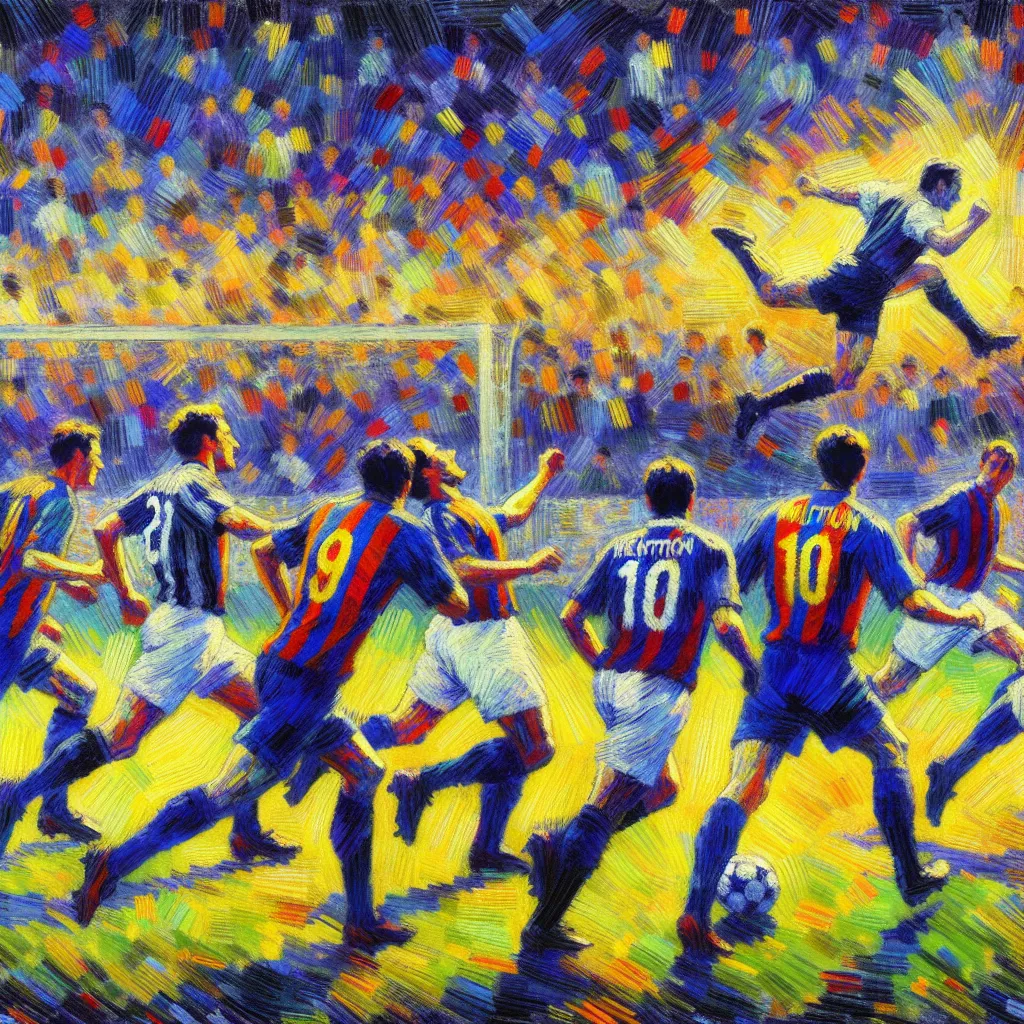
- Published on
- Authors

- Name
- Sports Tips
The Evolution of the 3-5-2 Formation in Modern Soccer
In the ever-evolving tactical landscape of soccer, the 3-5-2 formation has resurfaced as a formidable setup favored by many top teams and managers. Rooted in flexibility and adaptability, the 3-5-2 provides a balanced mix of defensive solidity and attacking flair. Let's dive deep into the nuances of this formation, examining how it has evolved and why it continues to be a tactical mainstay in modern soccer.
Historical Context of the 3-5-2
The 3-5-2 formation gained prominence during the late 20th century, most notably employed by the Argentine national team during the 1986 FIFA World Cup. Over the years, managers like Louis van Gaal, Antonio Conte, and Gian Piero Gasperini have utilized this formation with great success, each adding their unique touch.
Key Components of the 3-5-2 Formation
The 3-5-2 formation consists of:
- Three Central Defenders (CB): Anchoring the defense.
- Two Wingbacks (WB): Providing width and transitioning between defense and attack.
- Three Central Midfielders (CM): Control the game's tempo and maintain positional discipline.
- Two Strikers (ST): Leading the offensive charge.
Tactical Nuances
Defensive Solidity
The three central defenders in the 3-5-2 formation ensure a compact and organized backline. Here's a closer look at their roles:
| Role | Key Responsibilities |
|---|---|
| Central Defender | Sweep behind the two stoppers, intercept long balls |
| Stoppers | Aggressively mark opposition attackers, win aerial duels |
Midfield Control
The midfield trio in a 3-5-2 formation offers a blend of creativity, defensive cover, and versatility. Typically, this trio includes:
- Defensive Midfielder (DM): Shields the backline and dictates play from deep.
- Box-to-Box Midfielder (B2B): Links defense and attack, contributes on both ends.
- Creative Midfielder (CAM): Provides the attacking spark, creating chances for the strikers.
Wingbacks: The Game Changers
Wingbacks are the linchpins in the 3-5-2 formation, tasked with providing width and dynamism. Their dual roles necessitate a high level of stamina and tactical intelligence.
| Wingback Role | Description |
|---|---|
| Defensive Duties | Track back to form a back five, thwart opposition wingers |
| Offensive Duties | Overlap and deliver crosses, exploit space on the flanks |
Striking Partnership
The two strikers in the 3-5-2 formation benefit from the wingbacks' width and midfield support. These partnerships often feature a combination of:
- Target Man (TM): Holds up the ball, wins aerial duels.
- Second Striker (SS): Drops deeper to link play, exploits spaces behind the defense.
Adaptability and Modern Usage
The 3-5-2 formation's true strength lies in its adaptability. Managers can tweak roles and dynamically switch formations based on in-game situations. For example, shifting to a 5-3-2 to reinforce the defense while maintaining attacking outlets.
Case Studies
Antonio Conte's Chelsea (2016-2018)
Conte's implementation of the 3-5-2 at Chelsea during the 2016-17 season led to a Premier League title. His use of wingbacks Marcos Alonso and Victor Moses provided width and dynamism, while N'Golo Kante and Nemanja Matic formed a robust midfield tandem.
Gian Piero Gasperini's Atalanta
Gasperini's Atalanta has become synonymous with the 3-5-2, emphasizing fluid attacking play and defensive resilience. Wingbacks Robin Gosens and Hans Hateboer have been instrumental, embodying the attacking and defensive balance required in this setup.
Conclusion
The 3-5-2 formation continues to be a tactical favorite due to its balance, flexibility, and capacity to maximize player strengths. By effectively utilizing wingbacks and maintaining a solid defensive core, teams can control games and adapt to varying match scenarios. As modern soccer evolves, so too will the 3-5-2, remaining a cornerstone in the tactical arsenal of astute managers.
Feel free to share your thoughts or any experiences you've had with the 3-5-2 formation in the comments below!
